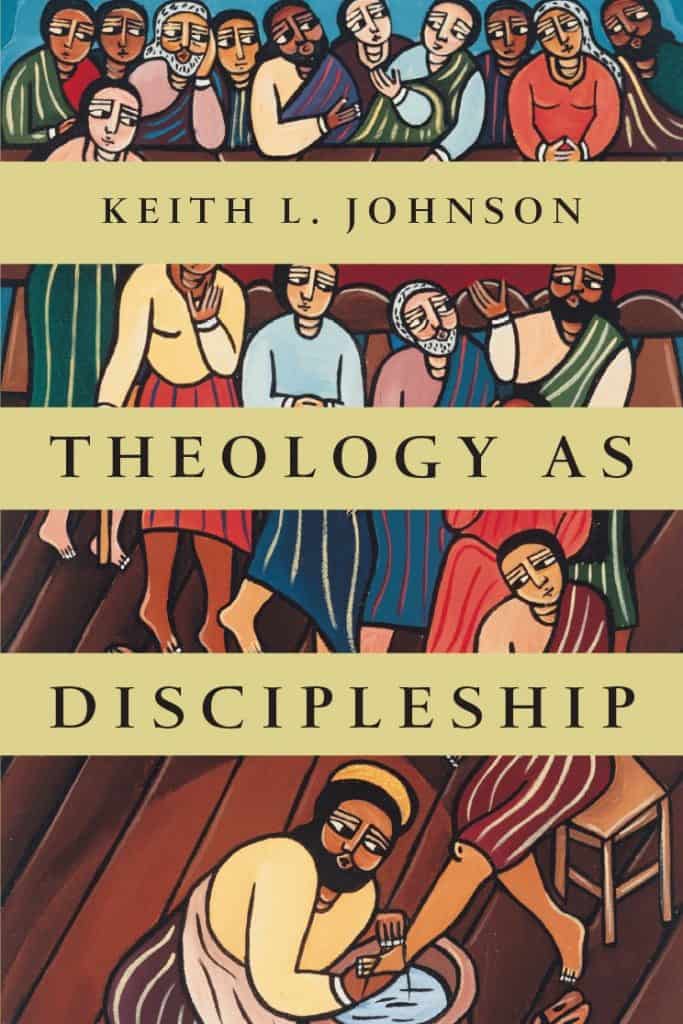⏱️ Estimated Reading Time: 4 min read
It’s a shame that theology so regularly needs to be defended. The fact that it does just goes to support Keith Johnson’s book Theology as Discipleship. The divorce that theology and Christian living has been through over time has had massive and long-lasting implications, like most divorces. It is Johnson’s contention that the two not only can be reconciled but, rather, that they must be. This volume not only helps us to see theology with fresh eyes, but it demonstrates the necessary link between the practice of theology and discipleship. This book will serve the church well by demonstrating the validity of theology as a means to godly growth.
The Goal of the Book
Johnson establishes the goal of this book simply. The goal is “to rebuild our understanding of how and why the discipline of theology operates so that we might overcome some of the legitimate worries Christians have about it (13). To that end, Johnson has written seven chapters that serve both as explanations and models. Chapter one introduces the subject and attempts to give a brief history of the separation of theology and the Christian life. His context helps us to see how the church came to fear the academic theologian, and how the academic theologian came to resent the local church in many cases.
The influence of the academy on theology shaped the goal of the theology and altered its standard of truth and effectiveness in education. This caused the church, rightly, much consternation and so the divorce began. Johnson sees a better way, forward, however, and attempts to conclude the chapter by explaining this alternative. The church needs the academic theologian in order to challenge its own presuppositions about the interpretation of Scripture, understanding of doctrine, and application of truth. Likewise, the academic theologian needs the church in order to challenge and push back against the presuppositions of the academy and its criterion of rationality (33).
A Faithful Model of Theology Driven by Discipleship
In the remaining chapters, he builds a model of faithful theology driven by discipleship. Each chapter touches on a specific doctrine (the Trinity, God-Man nature of Christ, union with Christ, the Scriptures, the church, and the Mind of Christ). This is used both to defend the relationship between theology and discipleship and also to model this relationship. Johnson beautifully weaves academics and discipleship across the chapters, illustrating how the details of the doctrine of the Incarnation, for example, have significance for our discipleship. He articulates over and again how doing theology is actually one of the means by which we are made and grow as disciples. The book demonstrates a brilliant dance and was a joy to read.
Final Thoughts
The book is designed to be engaging for all readers. Johnson avoids the heady academic terminology where possibly, and yet he is not afraid to engage with academic theologians and advanced theological ideas. He can quote N.T. Wright or Augustine and yet never lose accessibility. The book would be especially great reading for a first-year theology student. I believe that many more advanced readers/students will benefit from it.
Far too much of a gap exists between professional theology and the local church. Bridging that gap has been of increasing interest to many people. John Frame has been writing on the practicality of theology for many years. Likewise, Kevin Vanhoozer has written many intriguing and compelling chapters on the subject as well. I am grateful for such authors, and yet we must do more. Johnson book demonstrates the validity of theology as a means of discipleship. I commend it to all readers, especially to pastors who have the hard task of bringing theological truth to bear on the lives of their people. This volume can help you by means of both instruction and model. Theology as Discipleship is a great resource for the church today.




